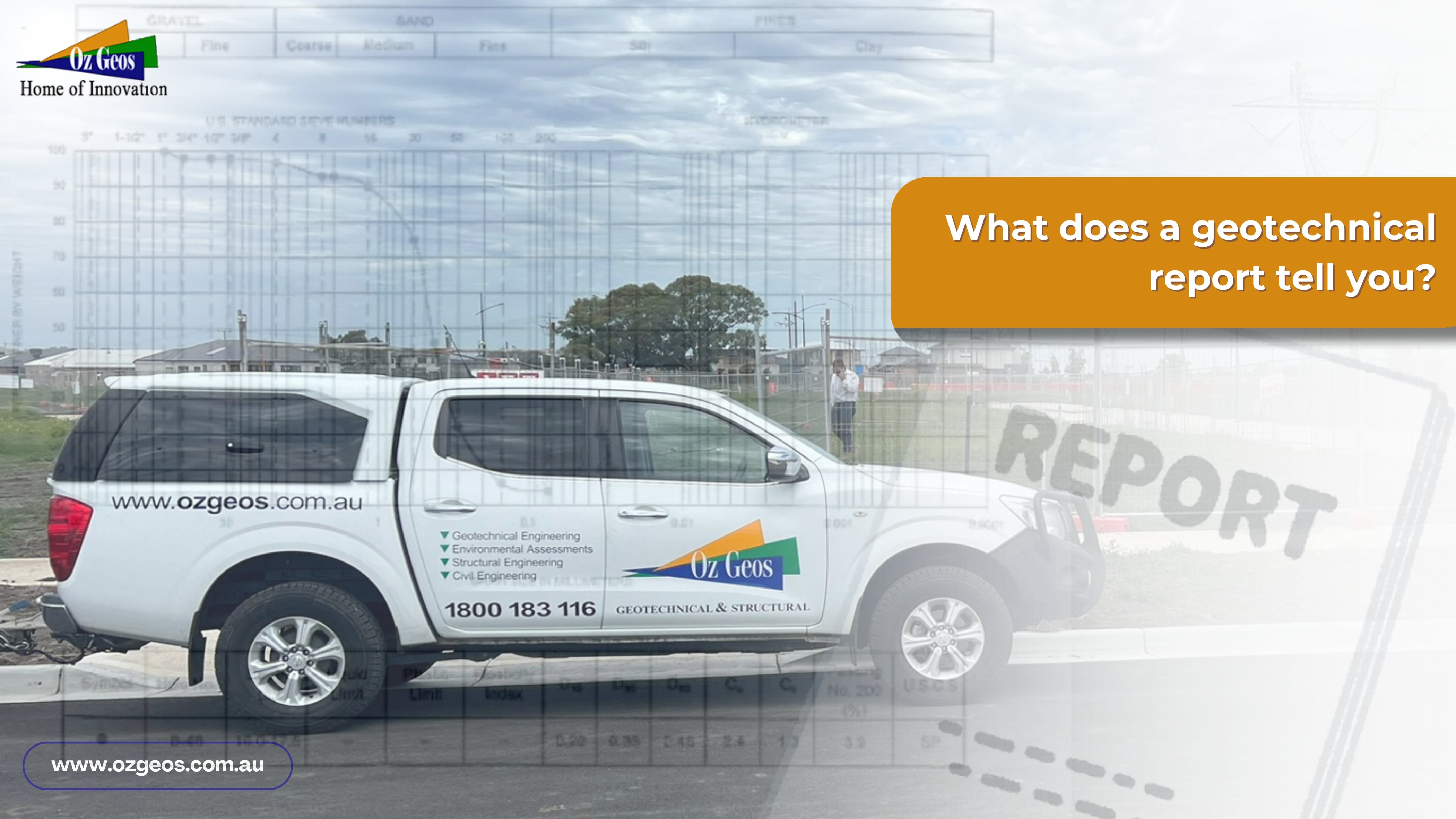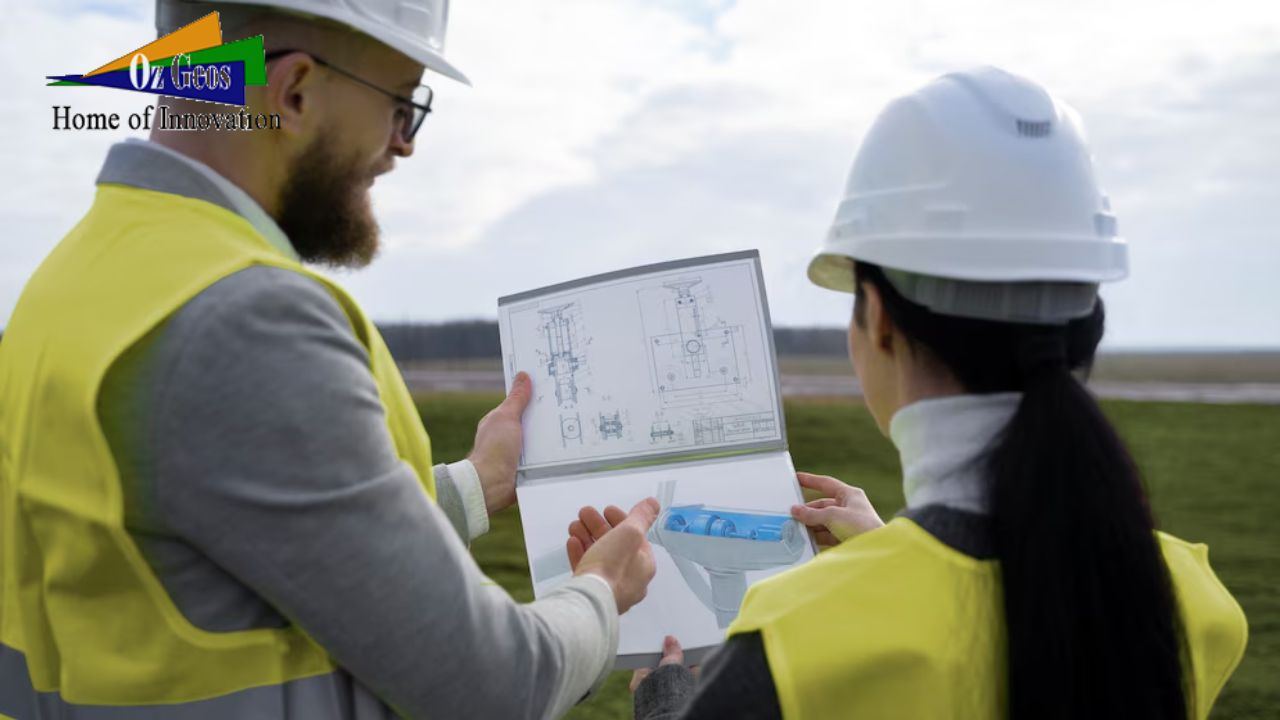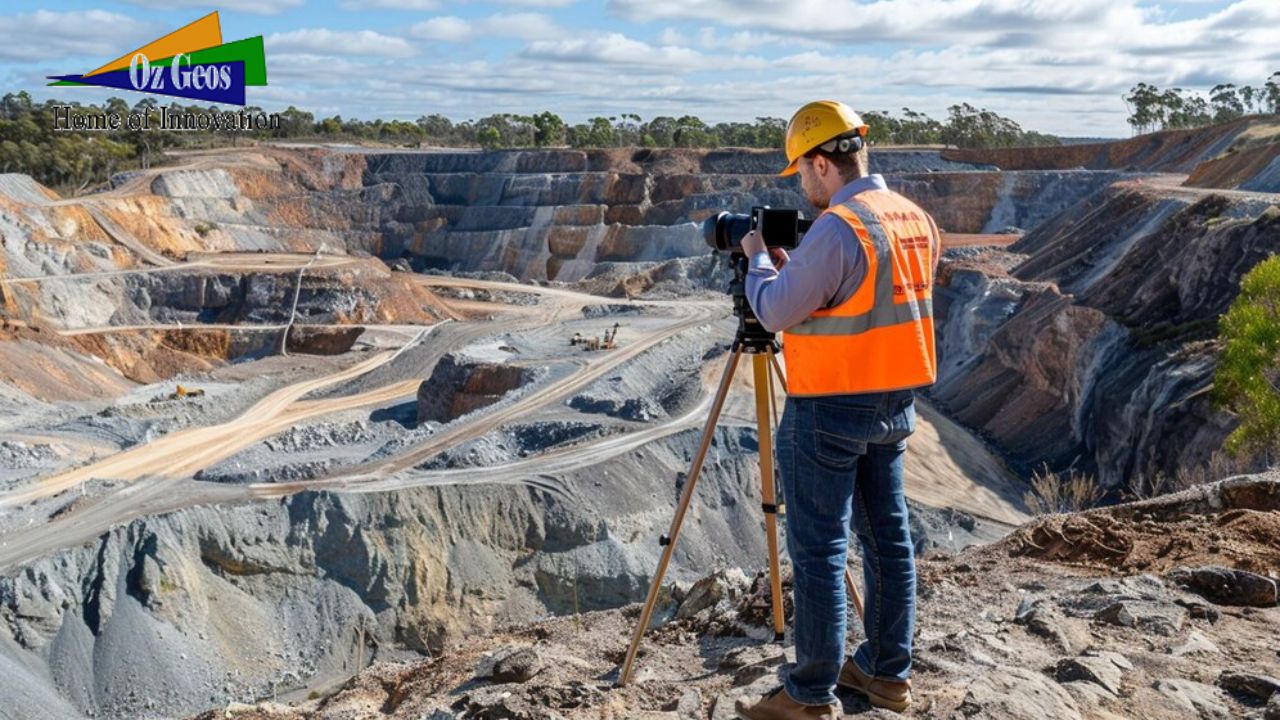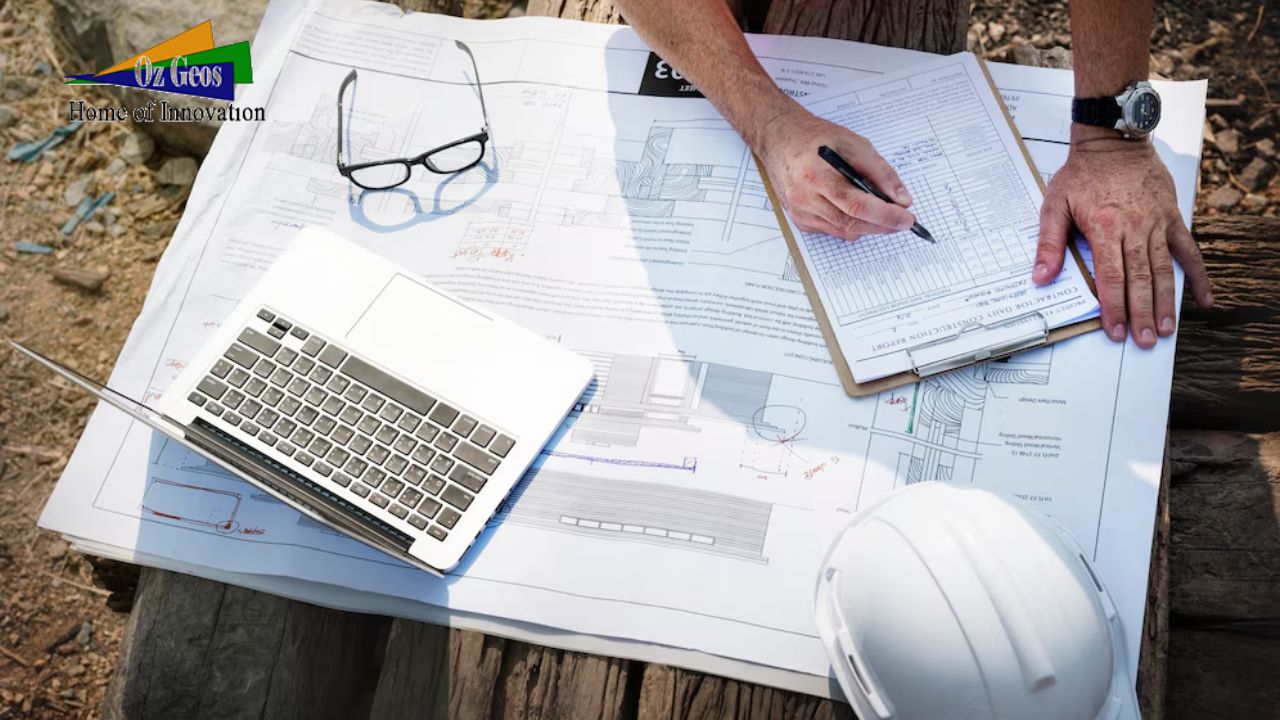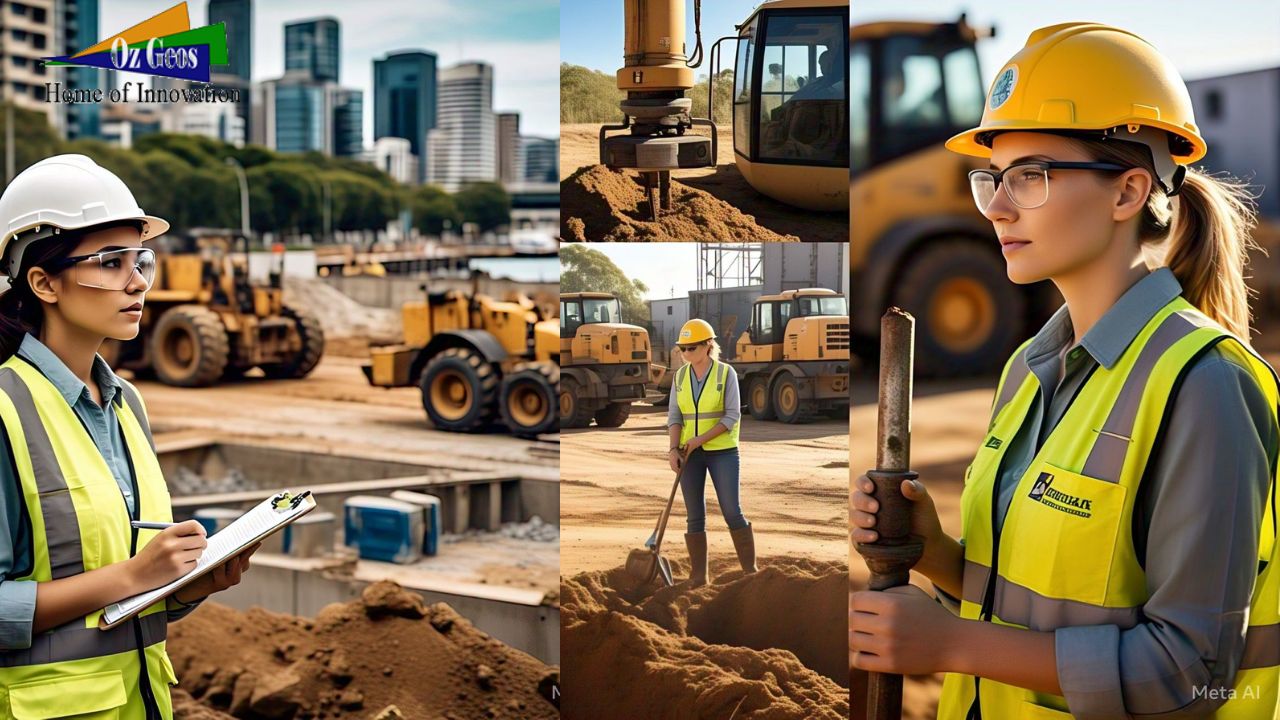What does a geotechnical report tell you?
Introduction: When performing any kind of construction or land development, it is essential to comprehend the underlying ground conditions of your project. This is the objective of geotechnical reports. These documents, commonly referred to as soil reports, provide an extensive review of a site’s underground conditions. They serve as crucial for architects, engineers, and property developers because they lead the design and building procedures, assuring safety, stability, and economic efficiency. At OzGeos.com, we highlight the importance of comprehending the contents of a geotechnical report and its significance for your project.
A geotechnical report: what is it?
A geotechnical report is an important document prepared by geotechnical engineers based on a thorough evaluation of the groundwater quality, rock, and soil at a particular location. Data from site inspections, laboratory analyses, and field investigations are the primary sources of data used in this study. It provides expert advice on foundation design, soil stability, drainage requirements, and other geotechnical elements that are essential to assuring safe construction processes.
Key Components of a Geotechnical Report
1. Site Description and Conditions: The report starts with an evaluation of the site’s geographical location, topographic characteristics, and any existing structures or conditions that could influence the study. This section offers an explanation for the upcoming findings and suggestions.
2. Subsurface Conditions: The underground examination is a vital aspect of a geotechnical report that involves boring and drilling tests to evaluate the physical and chemical characteristics of the soil. Engineers examine the various layers of soil, their compositions, and variations in these characteristics throughout the site.
3. Laboratory Testing Results: Soil and rock samples obtained during field studies are examined in a laboratory to evaluate elements such as soil density, moisture content, plasticity, and shear strength. The results of these studies are essential in clarifying the soil’s characteristics under various loads and circumstances.
4. Groundwater Conditions: Groundwater level and dynamics of flow have significant concerns for building foundations and site drainage. This research will explain groundwater levels and identify any possible problems with seepage, floods, or soil saturation.
5. Analysis and Recommendations: Based on the results, the article makes lengthy recommendations regarding different foundation types, including shallow, deep, and piling foundations, as well as site preparation and soil enhancement strategies. It also highlights possible hazards like soil erosion, landslides, and settling.
Why is a Geotechnical Report Important?
A geotechnical report is essential for discovering possible problems early in the design process, which allows prevention of costly changes or structural failures during development. The importance of this report cannot be highlighted.
1. Safety and Stability: Considering the characteristics of soil is essential for creating structures that endure a wide range of loads and weather conditions, reducing the probability of foundation breakdowns or significant settlement.
2. Cost Efficiency: The study assists in improving foundation designs via offering specific soil data and suggestions which may result in substantial material and construction cost reductions.
3. Regulatory Compliance: Many governments and regulatory organizations demand the creation of a geotechnical report prior to the granting of construction permits. A thorough assessment guarantees your project complies with every requirement, reducing unnecessary delays.
4. Environmental Considerations: The study focuses more on the environmental impacts of construction activities, such as the risks of soil erosion and contamination of groundwater, in order to assist developers employ sustainable building techniques.
Conclusion: A geotechnical report is an important document that may significantly affect the final outcome of a residential development, business development, or infrastructural project. The report is more than just a procedural requirement; it offers an extensive evaluation that directs secure and efficient building techniques. At OzGeos.com, we deliver comprehensive geotechnical services that correspond to the particular requirements of your project, to make sure your investment is safely established—both figuratively and literally.
For additional details or to arrange a consultation, please visit OzGeos.com.

